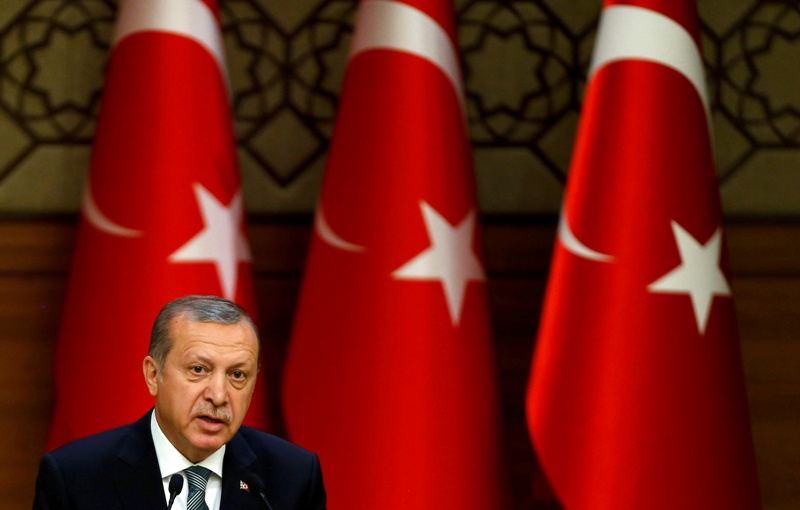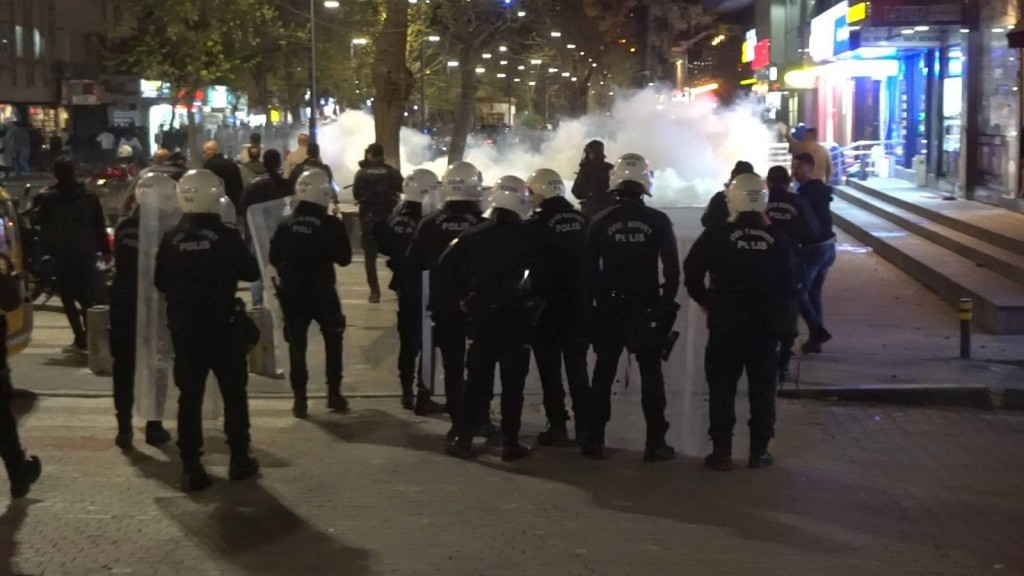The warrants target 47 former executives of the Zaman media group, which the government seized in March over its alleged connections to U.S.-based Muslim cleric Fethullah Gülen, who the government now blames for orchestrating the attempted coup.
* * *
UPDATE: Later in the day, Turkish authorities ordered the closure of multiple media outlets, including three news agencies, 16 television broadcasters, 23 radio broadcasters, 45 daily newspapers, 15 magazines and 29 publishing houses and distribution companies.
Some of the more well-known outlets included the Cihan news agency; television broadcasters Bugün TV, Can Erzincan TV, Kanaltürk and Samanyolu TV; newspapers Bugün, Taraf, Zaman, Today’s Zaman and Yarına Bakış; and magazines Sızıntı, Aksiyon and Nokta.
Many of the outlets ordered closed had been seized by the government months before the coup attempt and placed under the control of trustees. However, others, such as Taraf and Nokta, were not under trustee control.
* * *
Authorities on Monday issued warrants targeting 42 other journalists. At least eight people have already been detained under those warrants, including prominent journalist Nazlı Ilıcak and award-winning former-Hürriyet online editor Bülent Mumay.
The International Press Institute (IPI) pointed out that if all those against whom warrants were sought this week are detained, Turkey will reclaim its place as the world’s leading jailer of journalists and will surpass the high-water mark it previously set in 2012, when OSCE Representative on Freedom of the Media Dunja Mijatović’s office noted that the country was holding 95 journalists.
“More than 30 journalists were already behind bars in Turkey before July 15,” IPI Director of Advocacy and Communications Steven M. Ellis said. “If the 89 others against whom arrest warrants have been issued are also thrown in prison, Turkey will be holding at least 120 journalists, more than any held at one time anywhere else in the world in recent memory, if ever.”
He continued: “The staggering number of journalists targeted in the ongoing purge, coupled with the near-complete lack of evidence implicating them in any criminal or terrorist activities and the fact that many of them have been critics of government policies, suggests that the purge now has more to do with settling scores and silencing the president’s opponents than with identifying and punishing those actually responsible for the coup attempt.”
Hürriyet reported that at least one journalist, Şahin Alpay, had been detained in connection with the warrants issued today. Others reportedly targeted include Ali Bulaç, Bülent Keneş, Abdülhamit Bilici, Mehmet Kamış and Mümtazer Türköne.
The newspaper said that those named in today’s warrants are accused of “being a member of an armed terror organization, attempting to overthrow the Turkish government and preventing the duties of the state partly or completely, in addition to receiving unfair press announcement money from the state with irregularity in circulation”.
Turkish President Recep Tayyip Erdoğan has blamed followers of Gülen for the coup attempt. However, Gülen himself has denied involvement and the government has released little evidence to back Erdoğan’s claim.
Turkish authorities have been at odds with Gülen’s movement, a one-time base of support for Erdoğan and the ruling Justice and Development Party (AKP), since early this decade. The rift developed into open war in December 2013 with the eruption of a wide-ranging corruption scandal targeting dozens with ties to the AKP.
Erdoğan argued that Gülen movement adherents fabricated evidence and he declared the movement a terrorist organisation. Moving actively against media outlets said to be linked to Gülen, authorities seized the opposition Koza İpek Media Group in September 2015 ahead of repeat parliamentary elections. Trustees appointed to oversee the group shuttered it six months later.
Just days later, on March 4, authorities moved to seize the Feza Publications conglomerate, owner of the newspapers Zaman and Today’s Zaman, and the Cihan news agency. Trustees were similarly appointed and the next day Zaman, which in recent years had criticised the government, appeared carrying pro-government articles and a picture of a smiling Erdoğan.
*This statement was updated on July 28, 2016. It was also revised on Aug. 1, 2016 to note that the warrants authorised the detention of individuals. In Turkey, a formal “arrest” is a separate, subsequent action.



